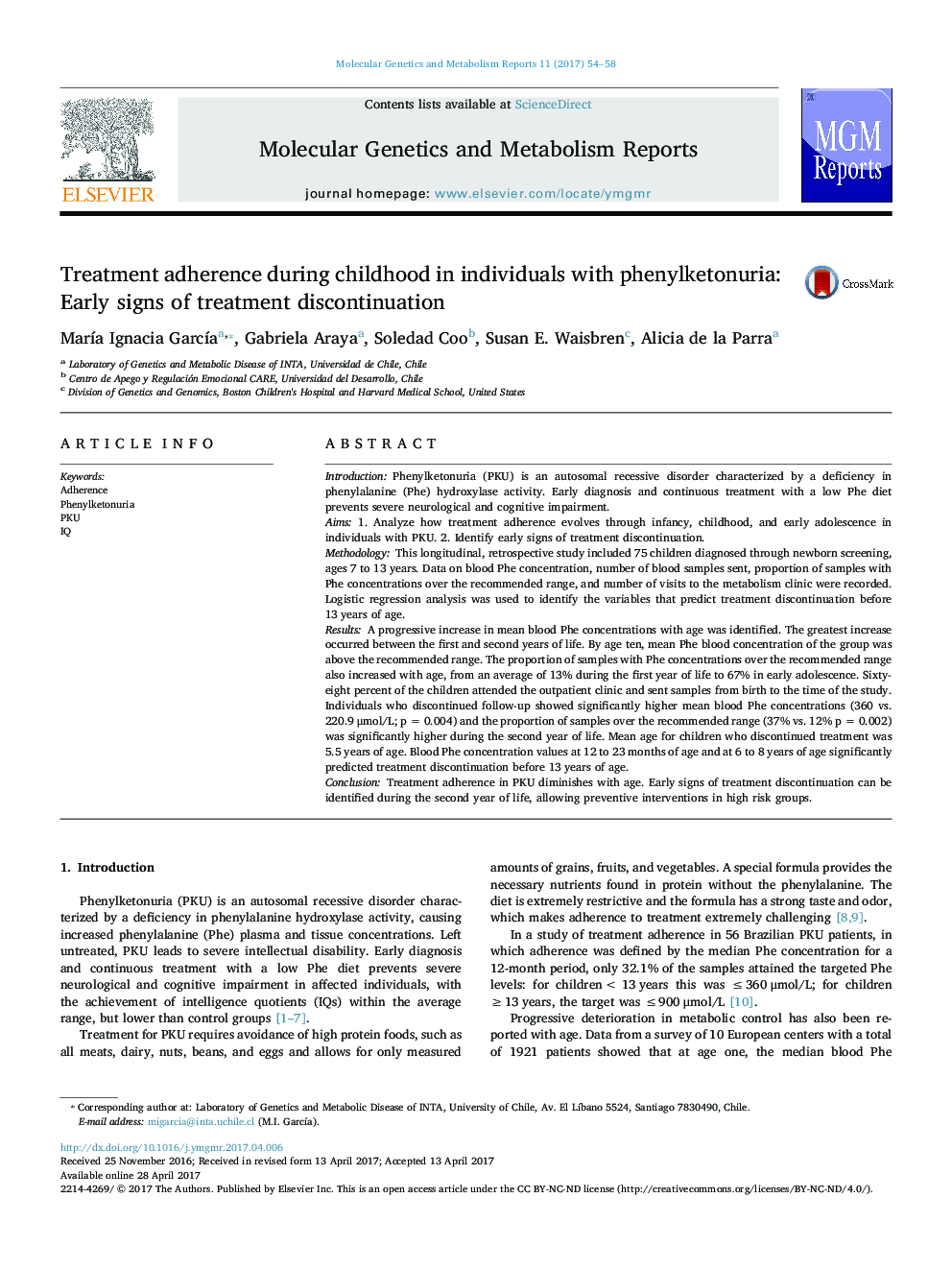| کد مقاله | کد نشریه | سال انتشار | مقاله انگلیسی | نسخه تمام متن |
|---|---|---|---|---|
| 5518553 | 1543975 | 2017 | 5 صفحه PDF | دانلود رایگان |
IntroductionPhenylketonuria (PKU) is an autosomal recessive disorder characterized by a deficiency in phenylalanine (Phe) hydroxylase activity. Early diagnosis and continuous treatment with a low Phe diet prevents severe neurological and cognitive impairment.Aims1. Analyze how treatment adherence evolves through infancy, childhood, and early adolescence in individuals with PKU. 2. Identify early signs of treatment discontinuation.MethodologyThis longitudinal, retrospective study included 75 children diagnosed through newborn screening, ages 7 to 13 years. Data on blood Phe concentration, number of blood samples sent, proportion of samples with Phe concentrations over the recommended range, and number of visits to the metabolism clinic were recorded. Logistic regression analysis was used to identify the variables that predict treatment discontinuation before 13 years of age.ResultsA progressive increase in mean blood Phe concentrations with age was identified. The greatest increase occurred between the first and second years of life. By age ten, mean Phe blood concentration of the group was above the recommended range. The proportion of samples with Phe concentrations over the recommended range also increased with age, from an average of 13% during the first year of life to 67% in early adolescence. Sixty-eight percent of the children attended the outpatient clinic and sent samples from birth to the time of the study. Individuals who discontinued follow-up showed significantly higher mean blood Phe concentrations (360 vs. 220.9 μmol/L; p = 0.004) and the proportion of samples over the recommended range (37% vs. 12% p = 0.002) was significantly higher during the second year of life. Mean age for children who discontinued treatment was 5.5 years of age. Blood Phe concentration values at 12 to 23 months of age and at 6 to 8 years of age significantly predicted treatment discontinuation before 13 years of age.ConclusionTreatment adherence in PKU diminishes with age. Early signs of treatment discontinuation can be identified during the second year of life, allowing preventive interventions in high risk groups.
Journal: Molecular Genetics and Metabolism Reports - Volume 11, June 2017, Pages 54-58
